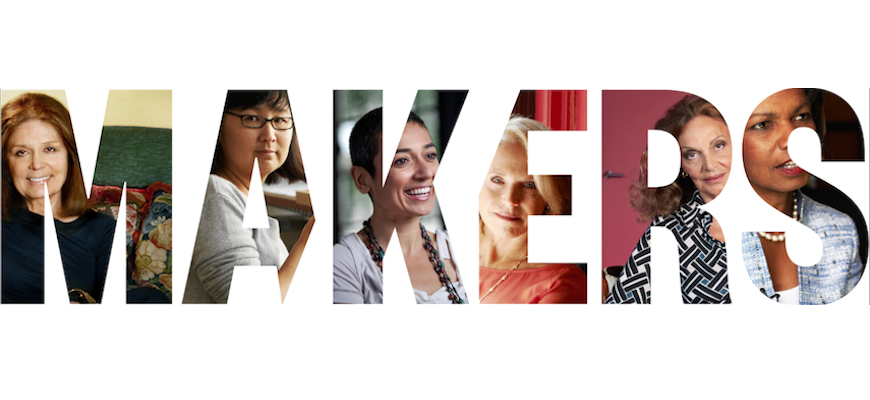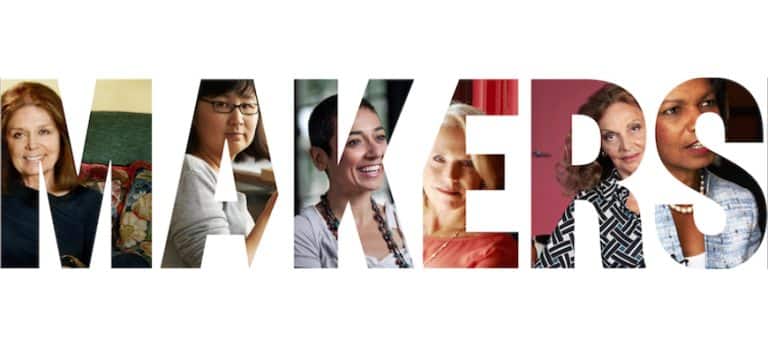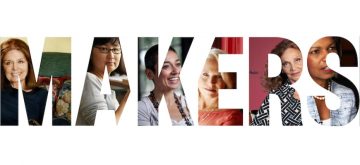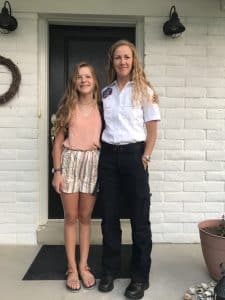A new PBS documentary outlines the history of the feminist movement in the United States of America from mid-20th century to present. I haven’t seen it yet, but I have heard some rave reviews. I have embedded the video here so we can watch and discuss it together.
Watch Part One: Awakening on PBS. See more from Makers: Women Who Make America.
Watch Part Two: Changing the World on PBS. See more from Makers: Women Who Make America.
Watch Part Three: Charting a New Course on PBS. See more from Makers: Women Who Make America.






13 Responses
Okay! I’ve finished watching it now. Here are my thoughts:
1. Everyone in America should watch this. It’s an excellent supplement to the male-centric version of American history we usually learn.
2. I loved how this film studied and interviewed women from a broad spectrum of views, generations and experiences, not just the usual suspects like Gloria Steinem and Betty Friedan. (But don’t worry, there is plenty of GS and BF in the film.)
3. It was a little eery how some of the descriptions of 1950s American culture sounded familiar to my upbringing as an American Mormon decades later, such as, “Women were expected to marry before they graduated from college. Otherwise, how would you find a husband?”
I thought the same thing! (In fact, I still worry that we kind of teach that.)
Okay I didn’t watch this, but I just wanted to say that the marrying before the end of college thing isn’t only taught to women! I was recently trying to convince my brother to stop stressing about getting married, and his response was that he only has one year left of college and after that he’ll never find anyone (not sure why he said this to his many years out of college single sister, but there you have it).
4. I think I understand my parents’ perspective of feminism a little better after watching this film. The issues discussed at the beginning of the timeline, around the 50s and 60s, centered on addressing discriminatory employment practices (like women who were being fired for being female and over 31 years old). The issues discussed in the 90s-present segments centered on domestic violence prevention, fighting sexual harassment and seeking family-friendly workplace policies. All of these issues resonate with me. No wonder I like feminism so much. In contrast, my feelings are a little more conflicted about the issues portrayed in the segments covering the 70s and 80s. I was too young to know what was going on in the world then, but according to the film, my parents’ generation was fighting about skyrocketing divorce rates, abortion, and the sexual revolution, all issues which are a lot less clear-cut to me than other feminist issues. No wonder my parents have more conflicted feelings about feminism than I do.
5. The film demonstrated that feminism is a lot of different things to different people. Within our own microcosm of current Mormon feminism, I see that to be true as well. I see a lot of bickering about which issues are too small to bother with or too big to take on and which strategies are either too bold or too complacent. I found myself pondering this recent comment at fMh by Lorie: As many of you are probably sick of hearing, I’ve been a Mormon feminist activist for nearly 40 years. I’m just a tad discouraged by the slow pace of change and the number of women who either have left and are leaving Mormonism because of it. Too, it’s awfully difficult to work for a more equitable religious community–even in baby steps–if the object of our efforts remains ambiguous.Can we all agree that we long for a more equitable religious community? If so, what do we mean by “a more equitable religious community”? How will we know when we achieve it? Does it mean just the ability to wear pants to church or pray in General Conference? What more? Is it a laundry list of individual initiatives to be checked off one by one, or is there an overarching object of our actions? For our suffragist sisters, it was clear and straightforward–the vote. All actions we’re directed toward that goal. I think it’s essential that we articulate the ultimate object of our efforts.For me, it’s women’s ordination. I’ve come to this not only because I believe anything less is insufficient to address the structural inequality in the Church, but also because it is specific, clear, and unambiguous.My question, Nat, is whether or not it’s possible to do activism and affect meaningful change without an overarching end in mind?
Thanks for all your reflections on this, April. I haven’t had a chance to watch it yet, but I’m hoping to in the next few days.
When I read Friedan’s The Feminine Mystique, I too was struck by the similarities in expectations for women in the 50s and women in Mormon culture. Eerie.
I loved this series. I was thrilled to see in Part 1 the segment about how conscious-raising groups began. I only knew about conscious-raising groups in the context of the creation of Exponent II–seeing it as a feminist construct, I realized that those Boston Mormon women’s conscious-raising groups would have looked different from a lesbian group or a black women’s group. What might a group have looked like that embraced that diversity? (Gosh, what might that sort of diversity look like in a feminist group now?)
I also loved what Ruth Bader Ginsburg said about her egalitarian marriage and her husband; it’s an extra that didn’t make it into the documentary. (here’s a short clip: http://www.huffingtonpost.com/2013/02/25/ruth-bader-ginsburg_n_2743991.html)
I watched the first 12 minutes of it last night (my life is crazy right now and TV time is seriously limited) but after just the first 5 minutes that talked about the female marathon runner, I was already teary.
Utah version of “Makers” is fascinating…
http://video.kued.org/video/2339261708/
[…] By April […]
[…] twenty-minute video was recently released by KUED, a public television station in Utah to accompany Makers: Women Who Make America. It outlines 1970s feminist history in Utah, including the LDS church intervention that […]
[…] twenty-minute video was recently released by KUED, a public television station in Utah to accompany Makers: Women Who Make America. It outlines 1970s feminist history in Utah, including the LDS church intervention that […]